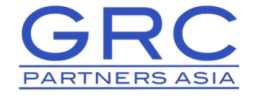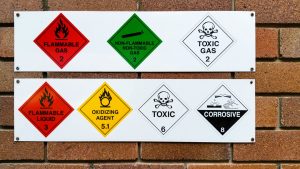To deliver safer and better care, healthcare providers will need to adopt proactive risk management, system-wide thinking, process digitalisation, effective data monitoring and a culture of continuous improvements
By: Tan Hak Yek, Founder and CEO of QUASR and GRC Partners Asia
Medical errors still at alarming rates
Despite sustained efforts by the healthcare industry to improve patient safety over the last two decades, medical errors continue to occur at unacceptable rates globally. A study by Johns Hopkins (2020) showed that more than 250,000 people in the US die every year due to medical errors, making it the 3rd leading cause of death after heart disease (700,000) and cancer (600,000). In Australia, Grattan Institute Report (2018) revealed that one in nine patients suffers a hospital-acquired complication. This figure is not far from WHO statistics which estimates one in every 10 patients being harmed while receiving hospital care, of which 50% are preventable.
How healthcare responds to incidents matters
The question is, why are we failing to reduce medical harm? To find some answers, a good place to start is to study how healthcare responds to incidents compared to high reliability organisations (HROs), such as airlines and chemical industries.
Many case studies on severe safety incidents are available in the public domain, providing great insights and learning. The airline industry conducts thorough investigation and Root cause analysis (RCA) on all direct and indirect causes, reviews procedures and takes a system-wide approach to identify the root causes of incidents. The process is transparent and carried out by independent team of experts. Findings are shared with all industry players. Changes often become industry safety protocols, while regulations are reviewed and updated.
On the other hand, case studies on medical incidents often give a different picture. We read about full blame being put on individuals, despite evidence of system failures; whistle-blower who exposed hospital shortcomings and weaknesses getting blacklisted; and misuse of monitoring devices and catastrophic clinical oversight being investigated at department level, instead of at the organisational or even manufacturer level. These are not consistent with responses expected from HROs.
Challenge our current thinking and learn from HROs
Healthcare today is a highly complex operation. We need to challenge our current thinking on management practices. One approach which has been advocated by many is to learn from safety-critical industries and understand how these industries achieve impeccable safety records.
Compared to HROs, we often find a high level of process complexity and variation in healthcare settings. An example is incident management where each department or unit may have their own workflow. There is a general lack of system-wide thinking to understand and prioritise risks. In many cases, after investigations and RCA are completed, only short-term fixes are taken instead of profound system changes that can prevent adverse incidents from recurring.
Having a fragmented management system with silo applications is one of the reasons for quality failures and ineffective health systems. A direct impact of this is in the lack of timely and more complete data sets from different sources, critical for effective monitoring and analysis. Finally, the blame culture sadly remains a common challenge many hospitals are still facing today. People are afraid to speak up. In contrast, HROs have a mature culture of safety and continuous improvement, open discussion, and active learning.
Five key learnings
Notwithstanding healthcare sector’s unique challenges, we believe the following key learnings can help healthcare providers in developing and sustaining a culture and system to deliver safe and reliable care:
- Streamlined and standardised processes
- System-wide thinking to identify root causes
- Proactive risk and hazard identification, mitigation, and review
- Effective data monitoring, measurement, and analytics
- A culture of continuous improvement and active learning
Taking an integrated, systems and risk-based approach
These key learnings and management practices call for an integrated and systems approach in managing quality, safety, and risk in healthcare. A systems approach will help us better understand how different parts of the hospital operations are impacting patient safety and influencing health outcomes, and the relationship between different elements. Policies, procedures, and processes should be designed with this in mind in to deliver better quality of care at lower cost.
Healthcare providers should shift from being reactive to proactive in risk and hazard identification and mitigation. Make risk assessment an integral part of quality and safety management. Take a risk-based approach in prioritising your next quality improvement initiatives.
Risk management in healthcare should go beyond patient safety and medical liabilities. With the increasing adoption of health technologies, higher cybersecurity threats, and shortages in health workers, risk management is becoming more complex and critical in hospital management. A comprehensive framework should cover multiple risk domains including operational, clinical and patient safety, financial, strategic, human capital, technology, legal and regulatory, and the environment.
Effective implementation requires a robust, integrated platform
Having an integrated software system is essential in operationalising these practices to achieve effective management. Manual processes can be ineffective in incident and risk management, even with established processes and procedures in place. Process digitalisation is the way forward and technologies are making it possible. An integrated solution allows for linking of processes and better understanding on how various parts are impacting safety and quality of care. It enables effective data monitoring, measurement, and analysis, providing valuable insights for decision-making. Also, it can serve as a communication and collaborative platform, further enhancing a culture of open discussion and active learning.
Risk management, incident management, audit management and feedback management can form the core of an integrated system. Other management processes and functionalities that can be added are mortality & morbidity reporting, clinical quality review and training & competency management. The system can be further expanded to include workplace safety and environmental related processes such as HIRARC (hazard identification, risk assessment and risk control), chemical register and waste management. These can be implemented in phases as your business grows and processes mature.
Lastly, a platform with robust system capabilities is needed. System requirements especially for large healthcare organisations can be demanding. The platform should be configurable, scalable, and flexible to meet specific requirements in organisational structure, workflow, process routing and email notification. Robust security access control and data security is a must. Multi integration methods will be needed, as system interfaces with EMR, CRM, HR system and enterprise data warehouse are often required. Insightful reporting and data analytics can provide an aggregated view on performance and risks to the management. A solution provider with healthcare domain expertise is also a key success factor.
Embarking on your hospital’s digitalisation journey
For smaller hospitals and healthcare settings, the journey on digitalisation of quality management processes can start with online incident reporting. Studies have shown that online incident reporting encourages people to report incidents, helps to build a safety culture, and facilitates learning. A comprehensive solution with investigation, RCA, action tracking and collaborative features can help turn incident reporting into improvement opportunities in your organisation.
Hak is the Founder and CEO of QUASR and GRC Partners Asia. He advises and works with healthcare organisations on achieving effective quality, safety and risk management through integrated solutions and process digitalisation. He also brings vast experience in implementing risk, EHS (environment, health & safety) and sustainability solutions for safety-critical industries. Hak founded QUASR with the vision of making patient safety solutions affordable and accessible to all hospitals.






